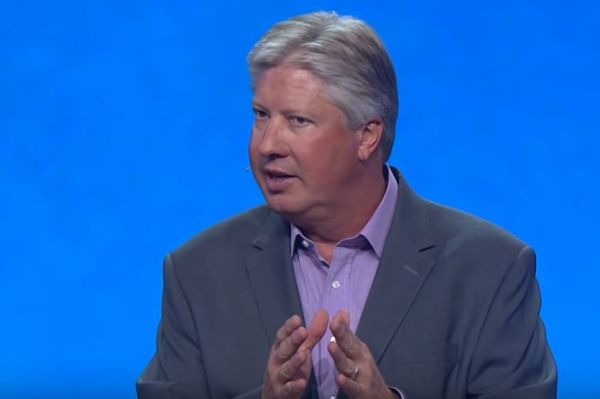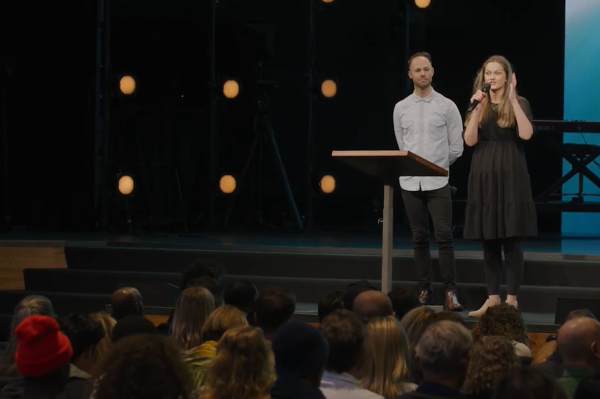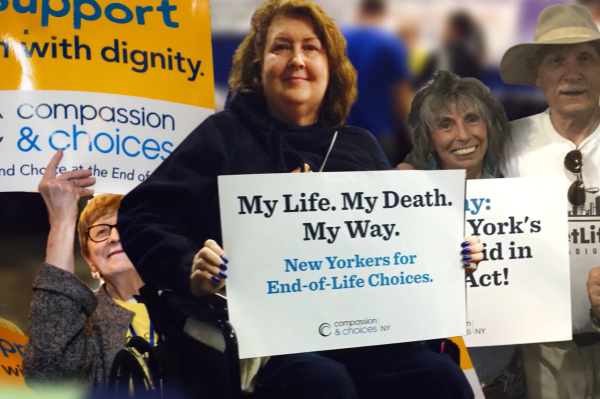Mid-Term Election Update: No Blue Wave, But No Red Surprise Either
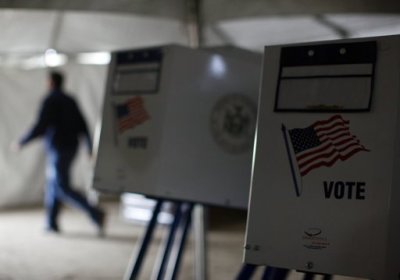
While 2018 is a major election year, many states have had their primary elections yet. But as the November General Election draws closer, the nature of this year's "mid-term" election is taking shape. A new survey by the non-partisan American Culture and Faith Institute, directed by George Barna, provides some new insights into where things stand today – and what those conditions might mean for the November outcome.
Voters' State of Mind
ACFI interviewed a sample of 1,000 adults from across and used their responses to divide them into various segments, one of which is comprised of "likely voters" in the November election. Looking only at the replies of those likely voters, ACFI discovered:
- 69% are angry about the state of America
- 66% say America is going in the wrong direction politically
- 68% say America is going in the wrong direction culturally
- 77% say America is going in the wrong direction morally
- 42% say America is going in the wrong direction economically
- Only 33% believe a Deep State – that is, "a group of unelected government and military officials who secretly manipulate or direct national policy" – definitely exists
- 45% approve of the job Donald Trump is doing as president
The survey data also revealed that Democrats have a more intensive interest in the mid-term outcome than do Republicans thus far. Upon comparing the responses of people from those two segments, Democrats were more likely to note the "wrong direction" of the country (related to all four dimensions listed above), more likely to describe the coming election as "extremely" or "very important", more attentive to news about politics and government (including the 2018 election), and substantially more likely to be a "likely voter" in November.
Likely to Vote
Mid-term elections traditionally generate only a minority of registered voters casting a ballot. Over the course of the three most recent mid-term General Elections (2014, 2010, 2006), the average turnout has been just 36.8% of the voting-age population.
The ACFI survey estimates that if the 2018 election were to be held today, the estimated turnout would be even lower than the recent average – approximately 33%. (See the About the Research section at the end of this report for a description of the factors used to identify likely voters.)
Digging a bit deeper, the survey estimated that turnout would be higher among Democrats (51%) than among either Republicans (42%) or Independents (40%).
The results also indicated that liberals are more enthusiastic about voting in November than are conservatives. An estimated 53% of liberals would turn out today, compared to just 41% among conservatives and a mere 23% of moderates.
Among the major faith segments, 49% of SAGE Cons would be expected to vote, compared to 36% of Notional Christians, 31% of born again Christians, 30% of Skeptics, and 28% of people associated with non-Christian faiths.
Election Interest and Party Preference through Mid-May 2018
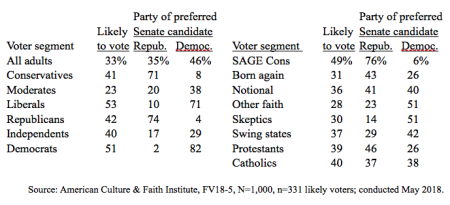
Party Preference at the Polls
When likely voters were asked which party's candidates they would be more likely to vote for, the Democratic Party's candidates were in a better position than those aligned with the Republican Party. Overall, 46% of likely voters said they would support the Democratic Party candidates while only 35% lined up behind the GOP nominees. Note that an additional two out of every ten likely voters were either not yet decided or said they did not choose candidates solely based on party affiliation.
ACFI stated that there are 13 states in which there will probably be competitive races for a U.S. Senate seat. In those states, an election held today would produce an estimated turnout of about 37% - marginally higher than the 33% across the nation. In fact, in the competitive states there was little to distinguish the intentions of people according to party or ideology. Voters aligned with both major parties were equally likely to pay attention to election news; equally likely to state that the nation is moving in the wrong direction; and equally likely to approve of Donald Trump's handling of his job thus far.
However, in those highly competitive states likely voters are less likely than are people in non-competitive states to have made up their mind about who they might vote for at this stage of the contest. Democratic candidates have an edge, but a larger proportion of voters remain undecided in the hotly-contested states than elsewhere.
Faith and Voting
The 2016 presidential election was noteworthy for many reasons, one of which was the central role of people's faith in their voting decisions. That argument is supported by more than three dozen national and statewide surveys conducted by ACFI during the campaign, with the results described in The Day Christians Changed America, by George Barna.
A key voter segment in 2016 was the SAGE Cons, whose name is an acronym for Spiritually Active, Governance Engaged Conservative Christians. In the 2018 election it appears that SAGE Cons will again be a cornerstone of the conservative vote. More than six out of ten are still angry about the state of the nation but their anger and concern is different from that of many other voters. Unlike other voter segments, SAGE Cons host a majority saying the U.S. is headed in the right direction both politically (61%) and economically (86%). However, they remain intensely concerned about morality and American culture: nine out of ten (88%) say we are going in the wrong direction morally and seven out of ten (71%) say we are going astray culturally.
In light of these views, it may not be surprising that 87% favor Donald Trump and 89% approve of the job he is doing. Their likelihood of voting is far above the levels of the typical conservative voter: half are likely to vote, compared to slightly more than one-third of other conservatives.
Other faith segments seem less enthusiastic about voting in November. Born again Christians, people of non-Christian faiths and Skeptics are all less likely than the norm to vote in November.
Notional Christians, however, were more likely than average to vote. Even though Notionals supported a Republican presidential candidate in 2016 – for the first time in more than 20 years – it is noteworthy that they are again evenly divided in their party support at this juncture.
Adults who have a biblical worldview are substantially above-average in the likelihood to vote (43%). Protestants and Catholics had identical levels of voting likelihood. Within the Protestant community, both evangelical and mainline adherents reflected similar probabilities of turning out for the election.
Within the faith community, then, some of the faith segments that lean liberal ideologically and have a below-average history of election turnout – i.e., Notionals, mainline Protestants, and Catholics – are showing greater enthusiasm about this election than would be expected.
Caveats and Considerations
To place the survey results in context, George Barna, the Executive Director of ACFI, helped interpret the outcomes.
"Keep in mind we are still five months away from the General Election, and some states have not even had their primaries yet," the veteran researcher explained. "The closer we get to Election Day, the more people will pay attention to the races in their state, and the turnout estimate will rise and the profile of 'likely voters' will shift. By November it is likely the projected turnout will again be in the range of 36 to 38 percent."
"Several indicators suggest that Donald Trump will be one of the major issues in the election, even though he is not on the ballot," Barna continued. "His job performance, consistently conservative policies, tweets and brash public statements, past lifestyle choices, allegations about people in his administration, and the implications of his decisions such as the Supreme Court nominees will become major talking points for candidates and decision points for voters."
Barna also noted that while things have improved for Republicans since the start of the year, the GOP has a long way to go before it can breathe a sigh of relief. "If the election were held today," he commented, "it is likely that Republicans would lose their Senate majority as well as numerous House seats. It looks like the 'Blue Wave' that some analysts had projected earlier in the year has receded to a blue trickle, but the Republican Party must light a fire under its supporters if it hopes to maintain its existing majority in both the Senate and House."
About the Research
The research described in this report is drawn from FullView™, a monthly nationwide survey with a randomly-selected sample of adults, age 18 or older, whose demographic profile reflects that of the adult population. This analysis is based on an online survey conducted among 1,000 adults during the middle of May 2018.
Survey Definitions
Born again Christians are people who consider themselves as Christian and believe that when they die they will go to Heaven only because they have confessed their sins and accepted Jesus Christ as their Savior. Being born again is NOT based on describing oneself as "born again" and it is not based on church attendance. Born again Christians are about 30% of the adult population.
Notional Christians are people who say they are Christian but do not meet the "born again" criteria. In other words, they do not believe that they will go to Heaven after they die solely due to having confessed their sins and asked Jesus Christ to be their savior. About 40% of U.S. adults are Notional Christians.
Other Faith is a category that includes anyone who is aligned with a faith community that is not Christian in nature. These 9% of U.S. adults include those who are associated with faiths such as Buddhism, Judaism, Islam, Scientology, Hinduism, and the like.
Skeptics are individuals who describe themselves as atheist or agnostic, or who indicate that they do not believe in the existence of God or have no faith-related ties or interests. This segment has grown to incorporate roughly 21% of all adults.
SAGE Cons are a hybrid segment that combines faith and politics. The name stands for Spiritually Active Governance Engaged Conservative Christians. They are defined as adults who are registered to vote; they vote regularly and at higher turnout rates than the norm; they consistently pay attention to news about government and politics; consider themselves to be Christian; are born again (see above definition); are deeply committed to pursuing their Christian faith; are conservative on social and economic issues; and are theologically conservative. They represent between 8% and 10% of the national adult population, constituting some 20-25 million voting-aged individuals.
Likely Voters are registered voters who have a combination of factors that make them appear likely to vote in November, based on ACFI's past election research. The factors include the person's attentiveness to news about government and politics; their voting history; the intensity of their intention to vote in November; and their perceived importance of the upcoming election. A statistical algorithm based on these factors was used to calculate their propensity to vote, and thus to qualify as a likely voter.
Swing states refers to the thirteen states that are expected to have a competitive race for the U.S. Senate. Those states are Arizona, Florida, Indiana, Michigan, Mississippi, Missouri, Montana, Nevada, North Dakota, Ohio, Pennsylvania, West Virginia, and Wisconsin.
About ACFI and Its Research
The American Culture & Faith Institute is a division of United in Purpose, a non-partisan, non-profit organization. The mission of United in Purpose is to educate, motivate and activate conservative Christians to engage in cultural transformation in ways that are consistent with biblical principles. The organization does not support or promote individual political candidates or parties.
For access to many other studies conducted by ACFI, please visit the company website (www.culturefaith.com). To receive a free copy of the research reports produced by ACFI, visit the website and register for the American Culture Review newsletter.











